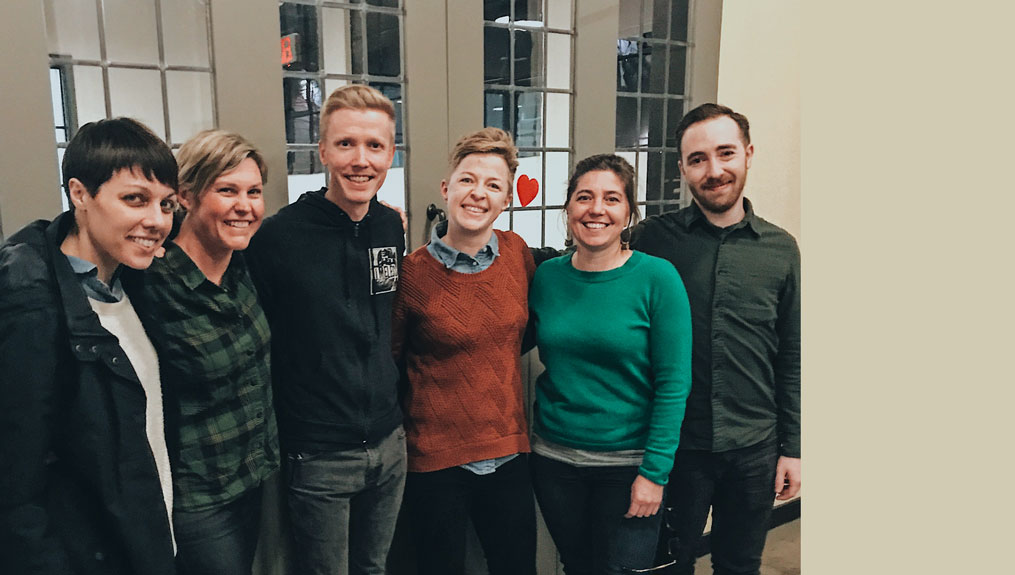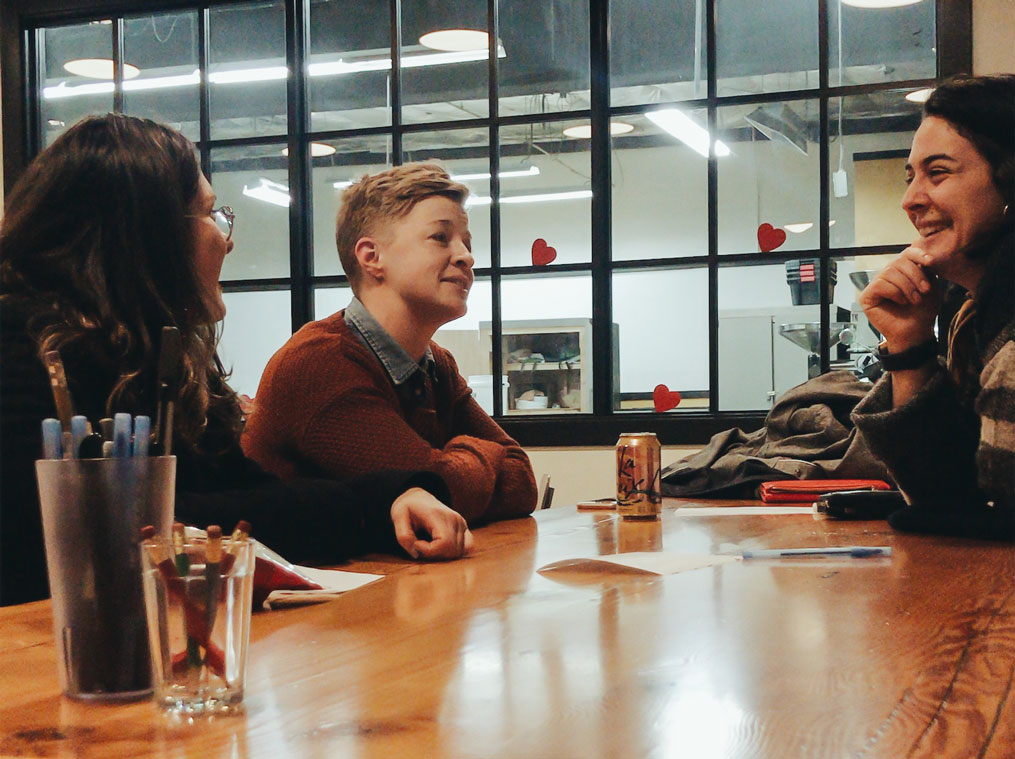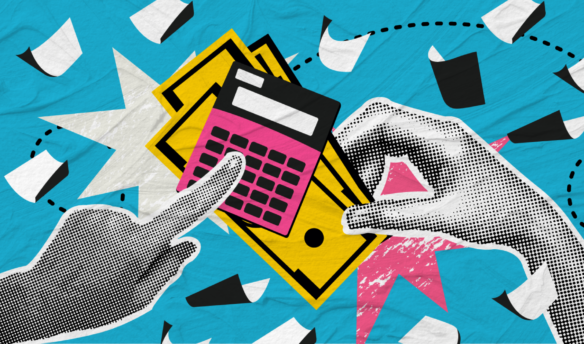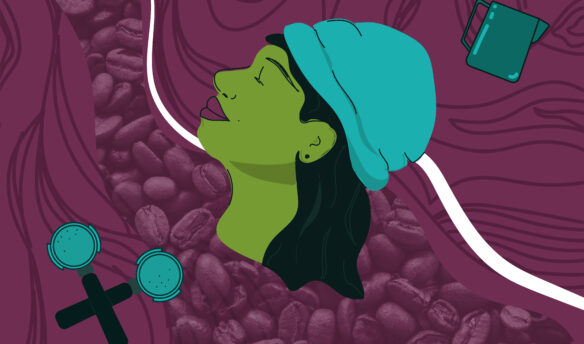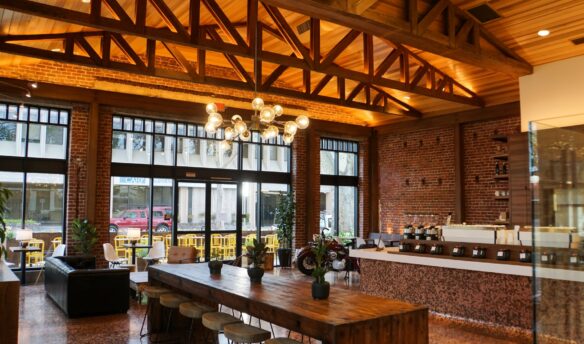Speaker Lauren Lathrop (third from right) with attendees. Photo by Mykel Vernon-Sembach
PORTLAND—2019 is all about inclusivity for coffee professionals. Many baristas are working hard to create safe spaces for customers and workers alike. Yet, good intentions may not always manifest good consequences. As the coffee industry begins to re-navigate how they approach customer service, coffee professionals such as Lauren Lathrop are taking steps to help baristas to best address systemic prejudices.
With 12 years in coffee under her belt, Lathrop is well aware of how baristas handle daily customer interactions. As a certified Authorized SCA Trainer, Head Judge for the U.S. Barista Competition, and the current Coffee Educator for Portland Coffee Roasting, Lathrop is well aware of unconscious bias in coffee. But Lathrop’s early work at Public Domain, located in downtown Portland, is what gave her the most experience acknowledging baristas’ snap judgments.
“Bias is something we all have,” she says. “We catalogue previous experiences in our life that help create shortcuts, allowing us to form quicker connections with the people around us. It is when these biases are not true that they become harmful.”
Every day, baristas use bias to best anticipate what a customer may need; but there is an assumption of what role customers should fill in the barista’s perception. Lathrop identifies this “task bias,” assumptions of how customers should act and speak in a café, as a catalyst. When baristas experience customers who do not fit these previous assumptions, it can alter how baristas communicate and provide service. Lathrop explains that by allowing our bias of customers to determine how we provide service, we are committing an offence to our employer’s brand and to the customer.
But Lathrop has helped to identify shortcuts based on what she calls “service languages,” different social indicators that help baristas translate exactly what a customer may be seeking in their service. These can vary from atmosphere, product knowledge, convenience, or community. [clickandtweet handle=”” hashtag=”” related=”” layout=”” position=””]By creating categories in which best to provide service, baristas can best assess customers’ needs without relying on a skewed bias.[/clickandtweet] Lathrop further explains that these can help create a plan of action for us to rehabilitate how we compose our service as baristas. By offering choices and actively listening, baristas can take accountability and become proactive in the café.
Dan Lynn, café supervisor for Nossa Familia’s SE Seven Corners location, found this event to be enlightening and anticipates that events of this nature will only grow throughout the year.
“In some ways, in having a community that’s like, ‘Hey, we’re all here, stumbling over the same stuff’ [is reassuring],” they say. “But, there are ways we can acknowledge these biases, learn from them, and work past them. Part of the benefit of coming here is just having that community around you where it is a safe space and we all make mistakes and we can all grow.
“It’s nice to have the tools that they equipped us with [to address implicit bias],” they add. “That’s something that I can do and can use moment to moment. I can check myself and ask, ‘Am I being fair to this person?’”


